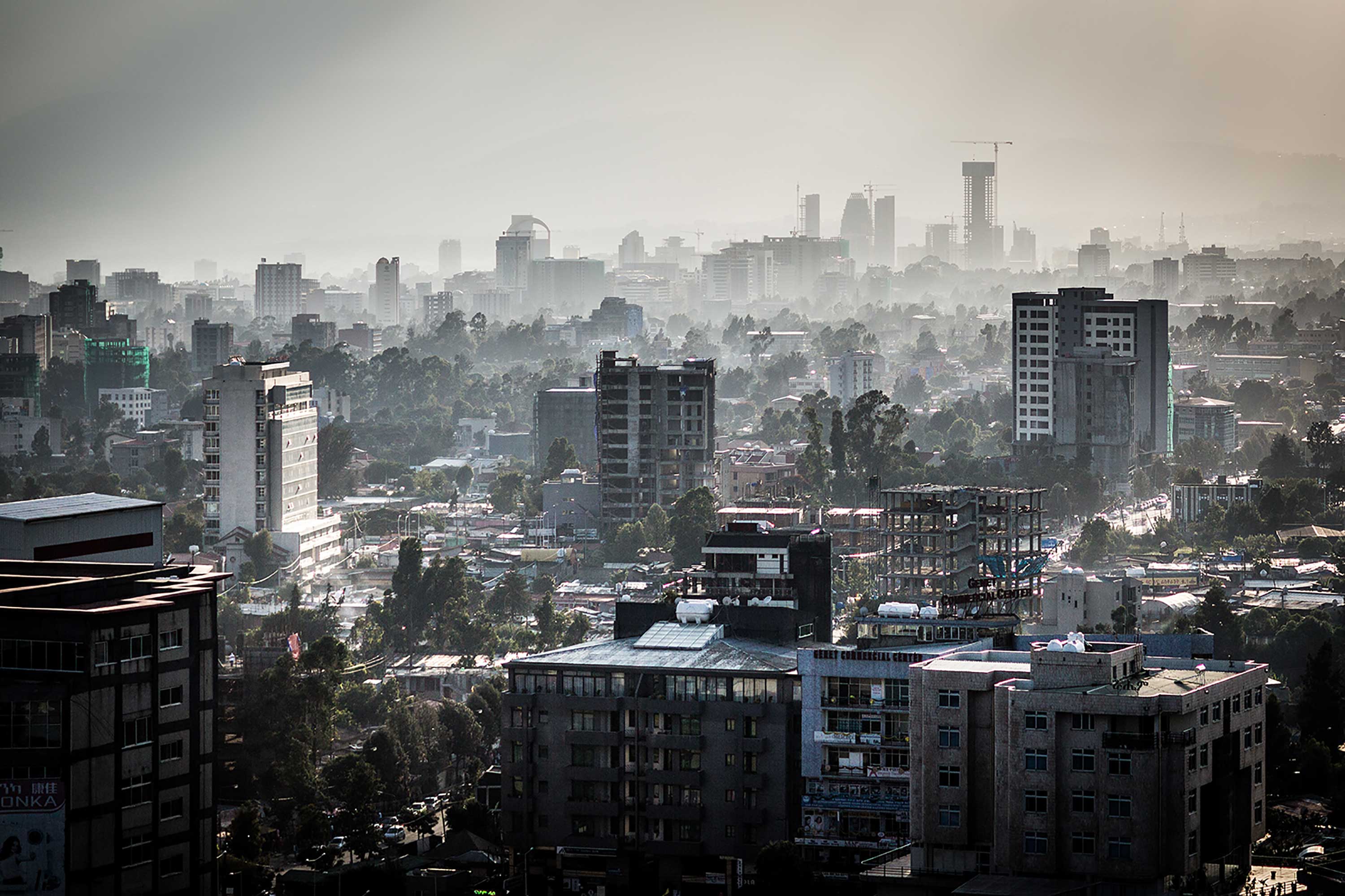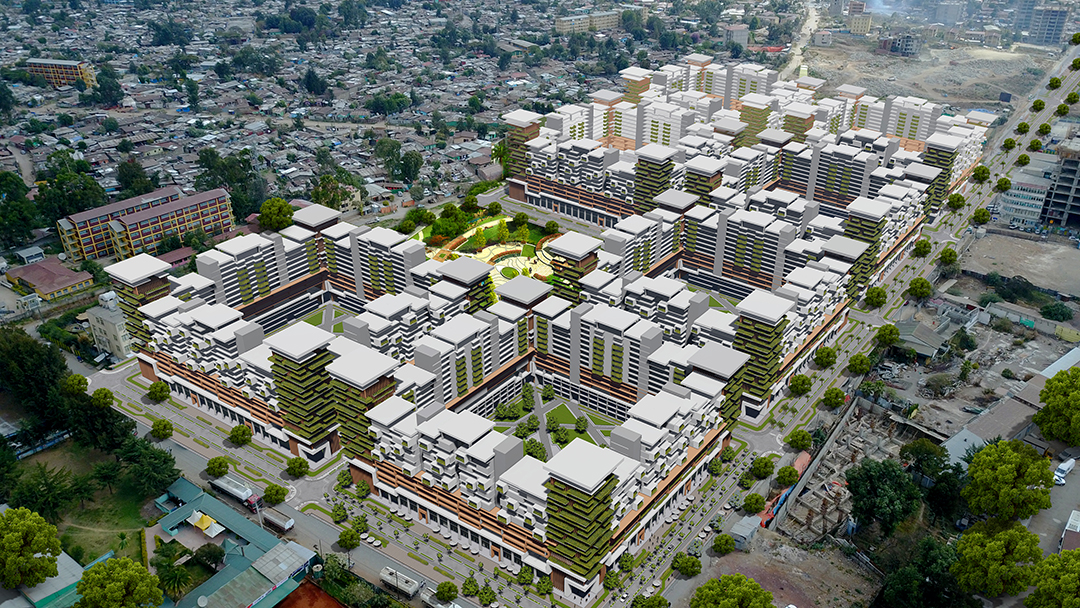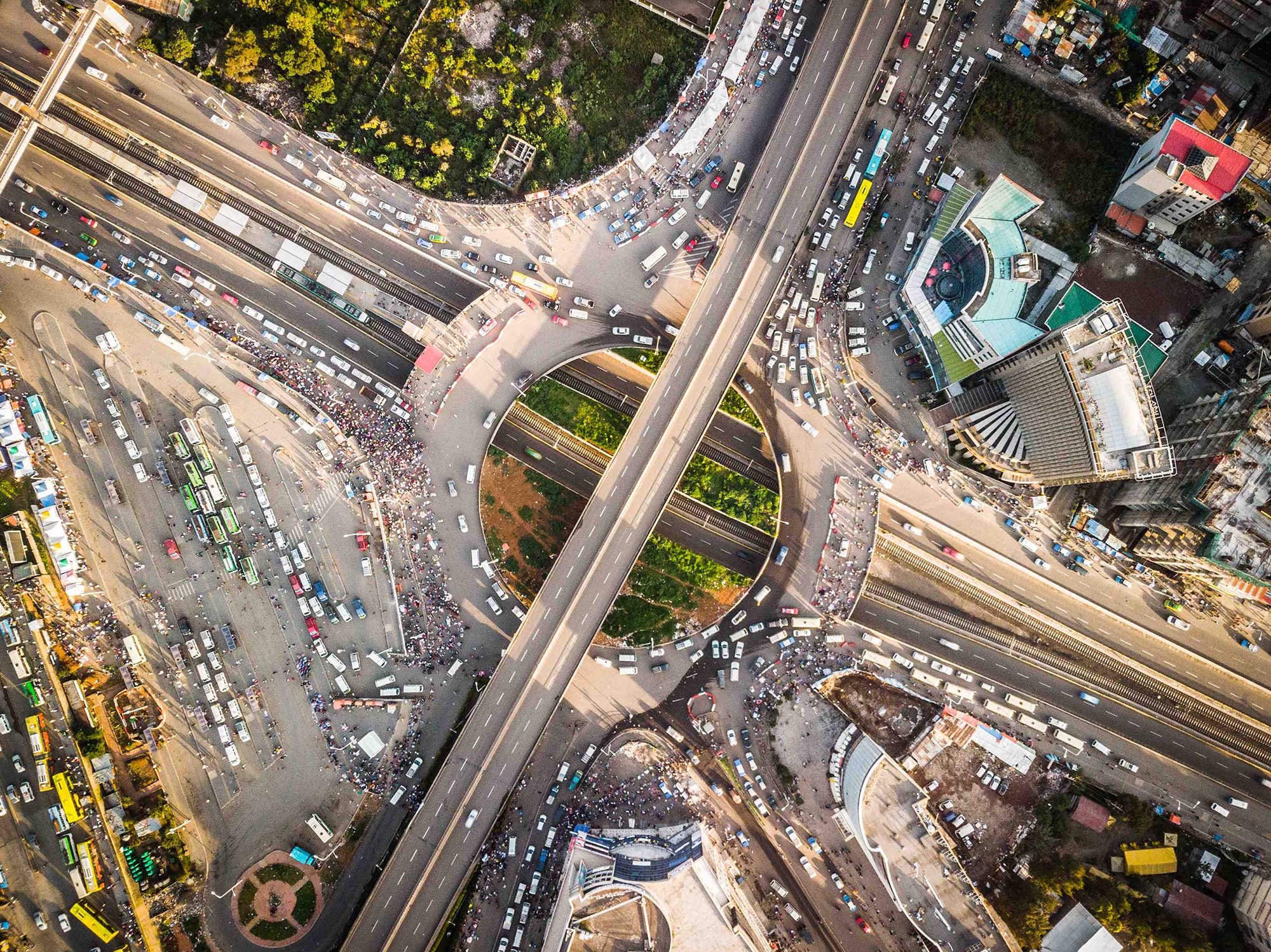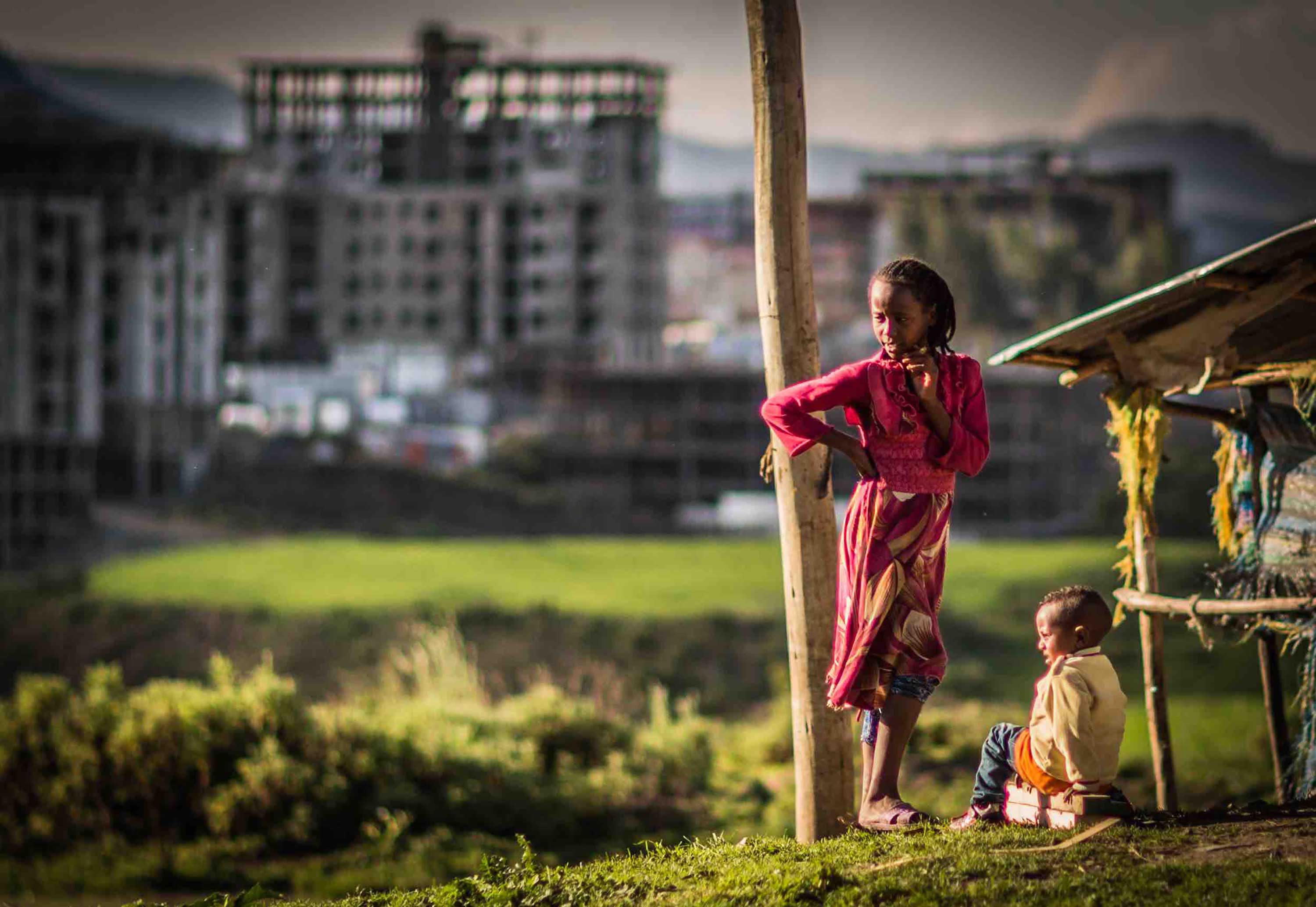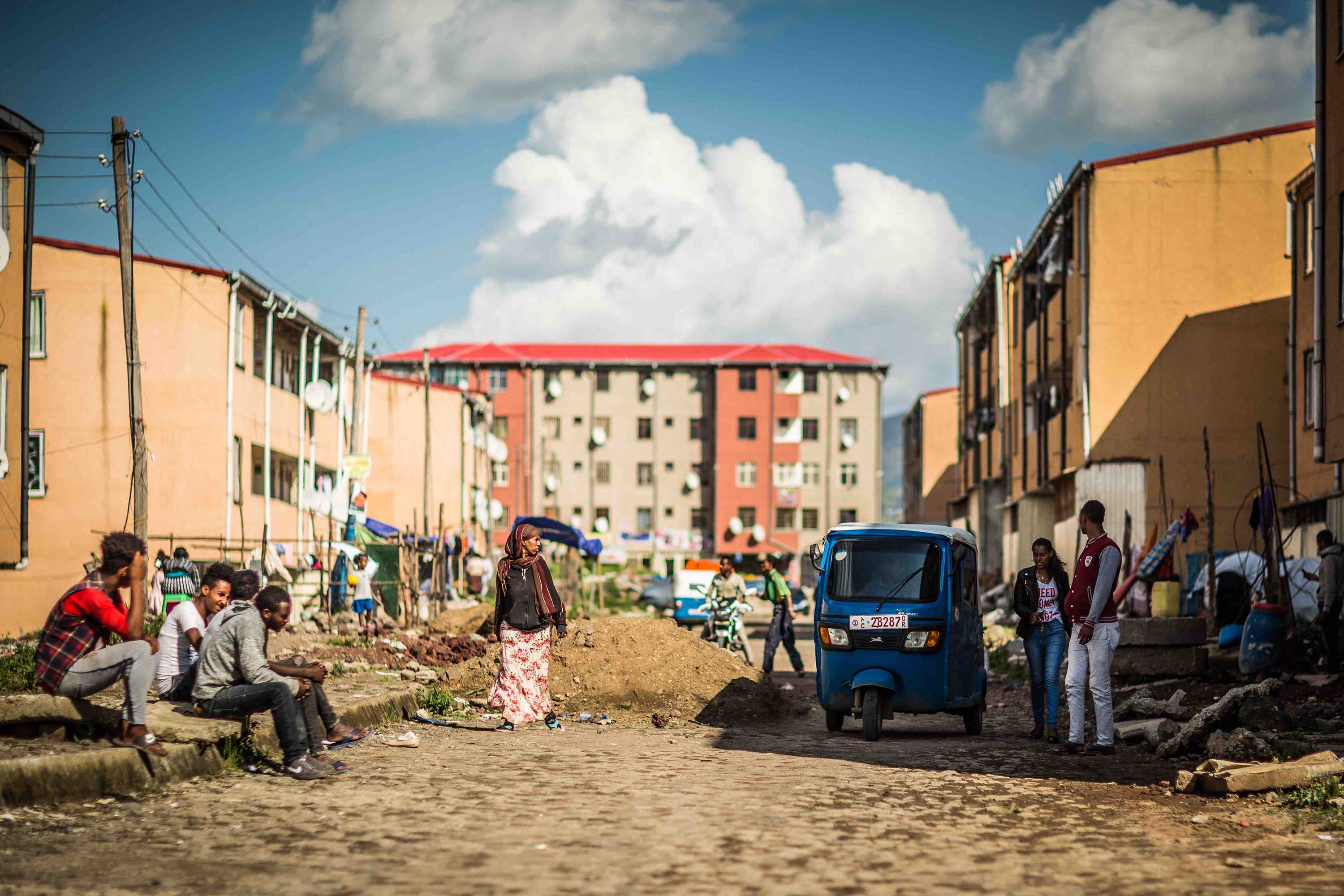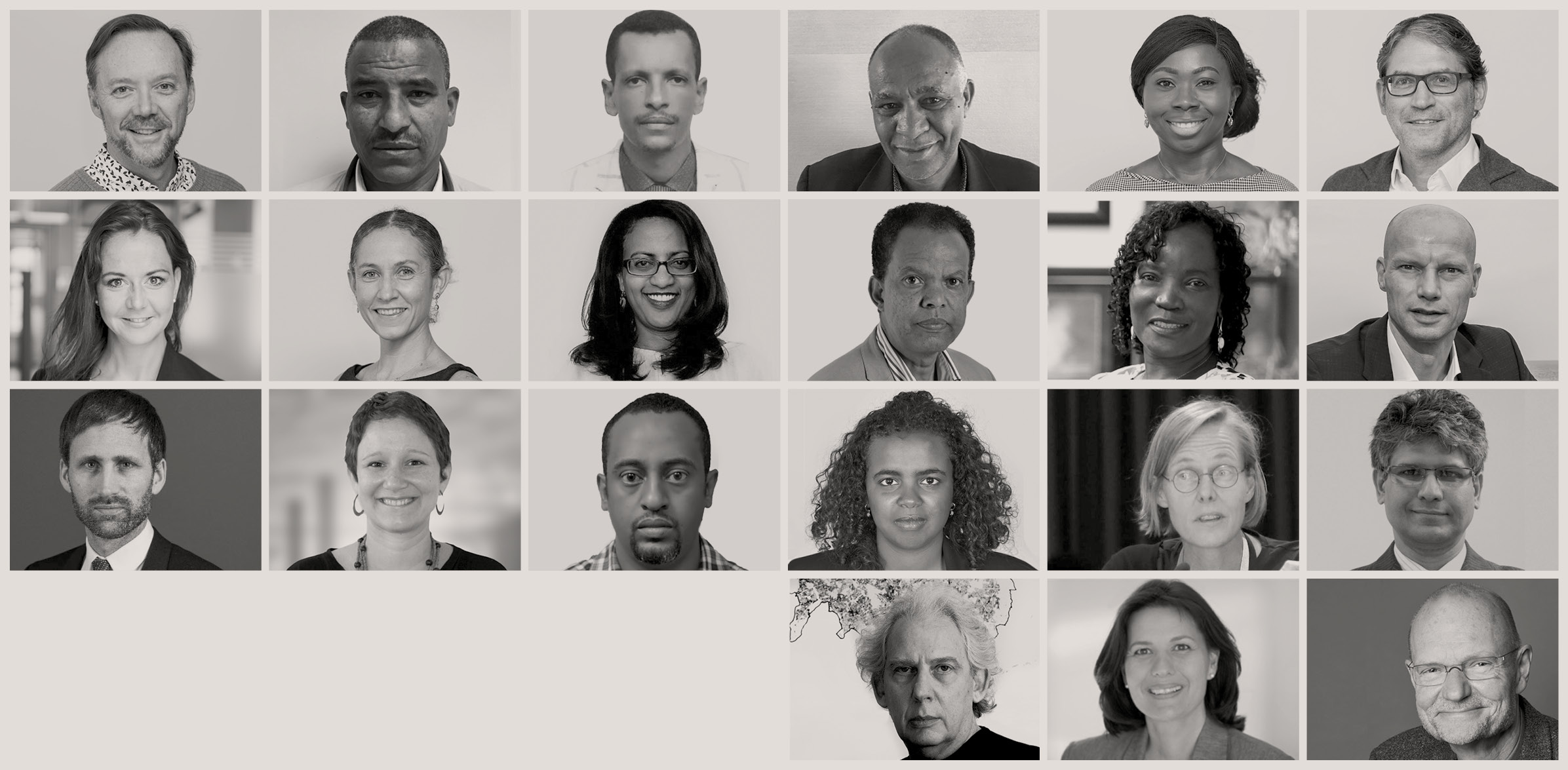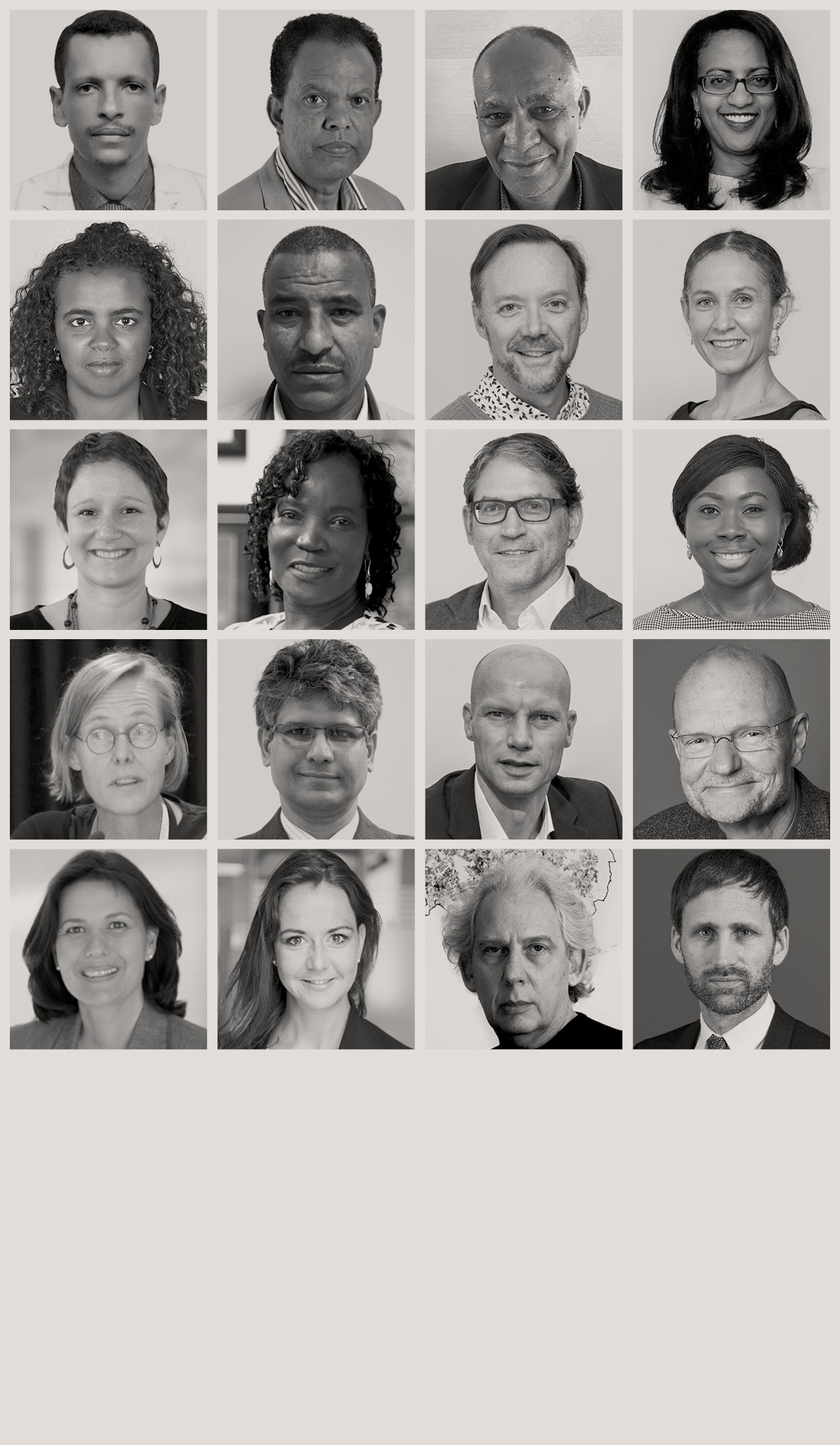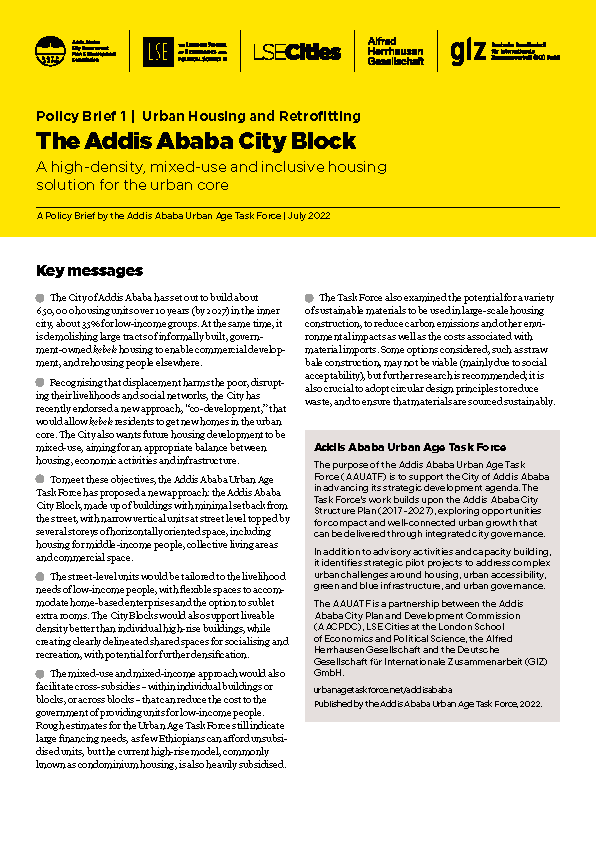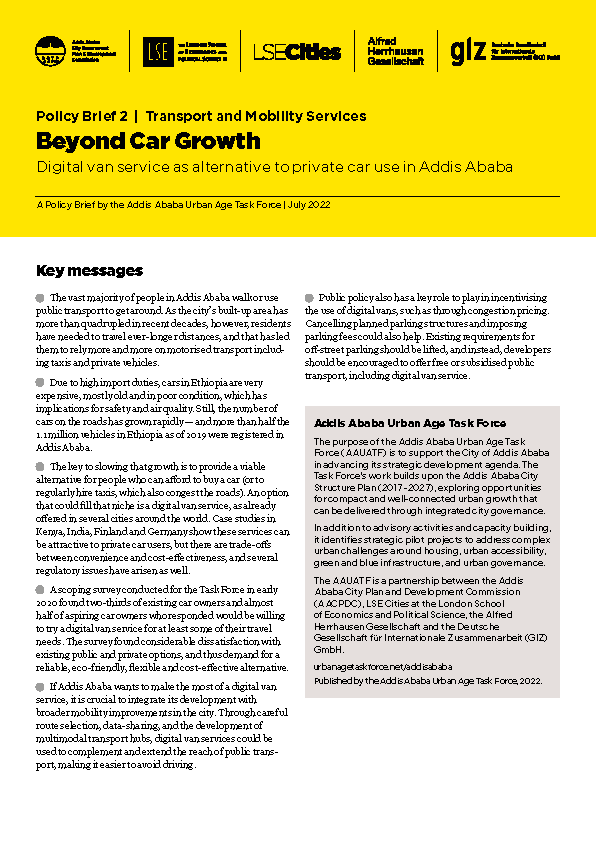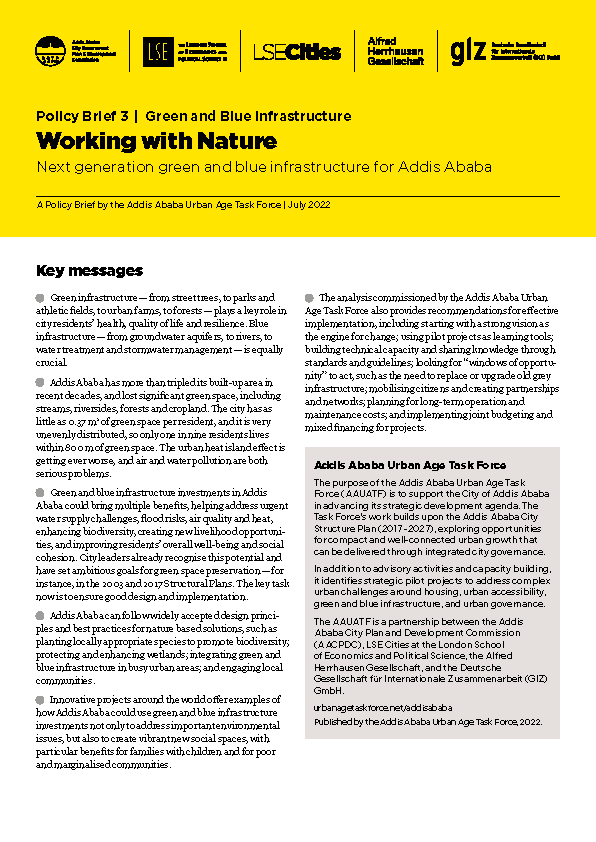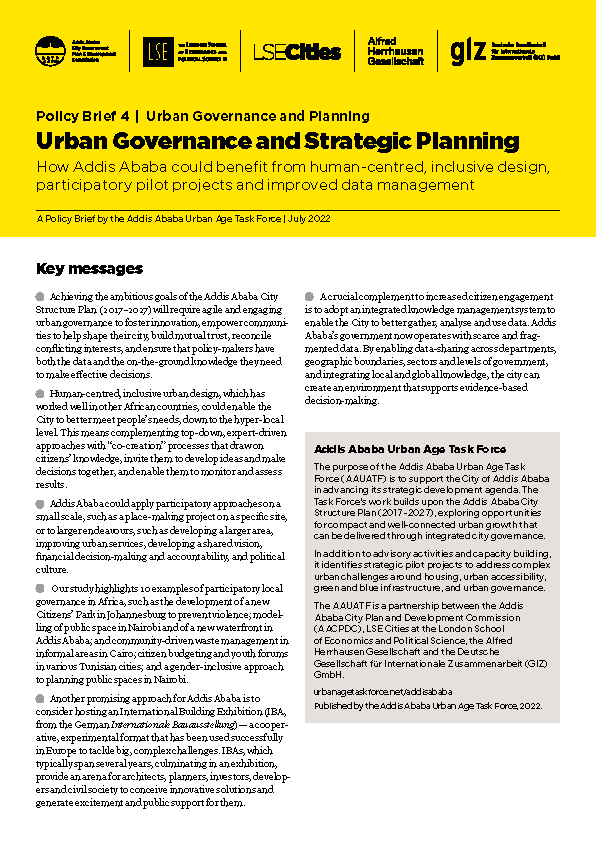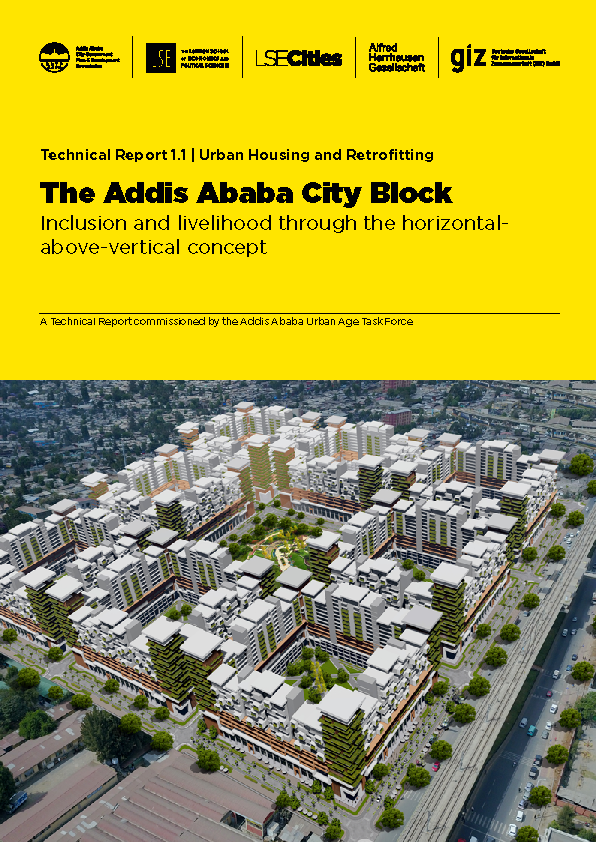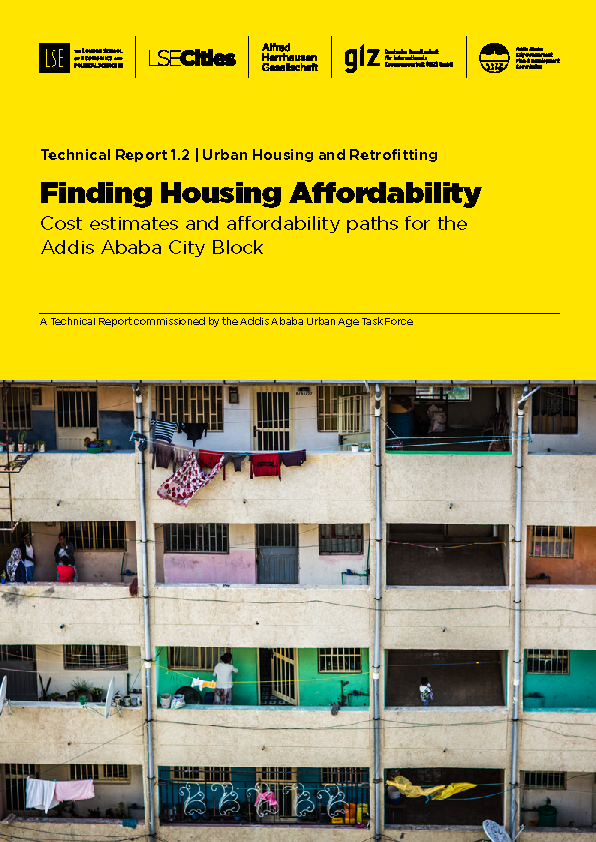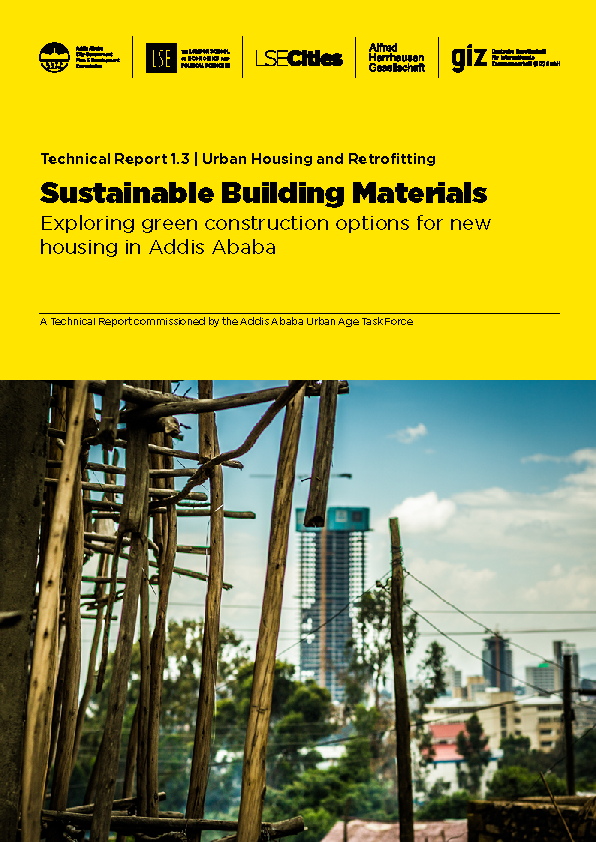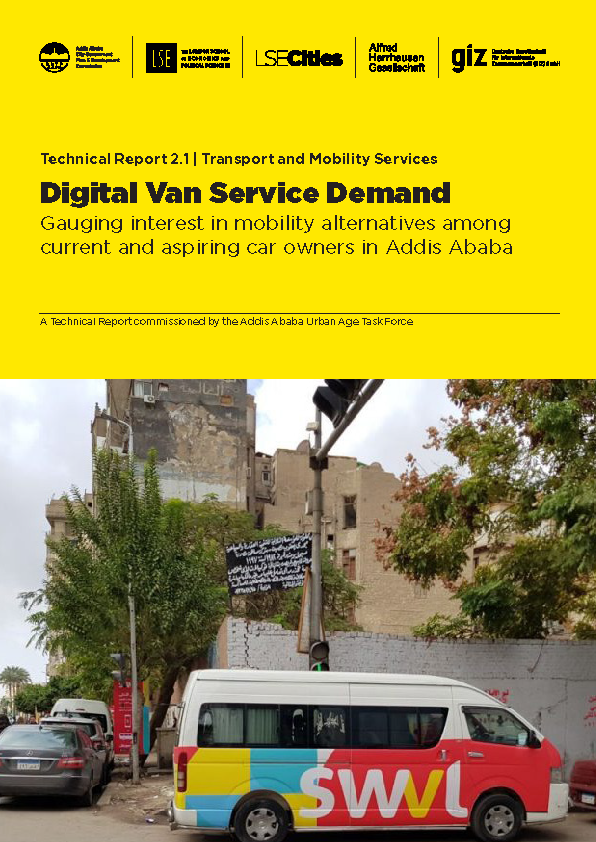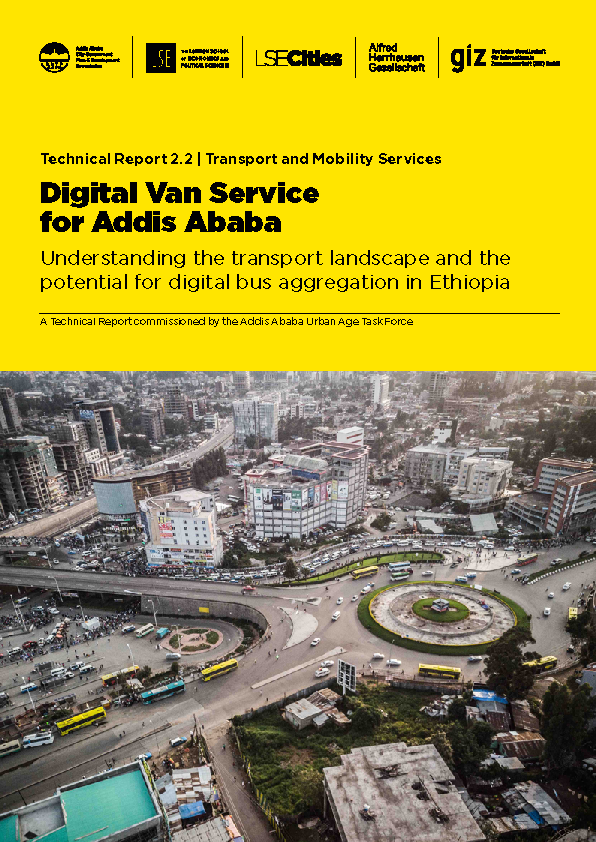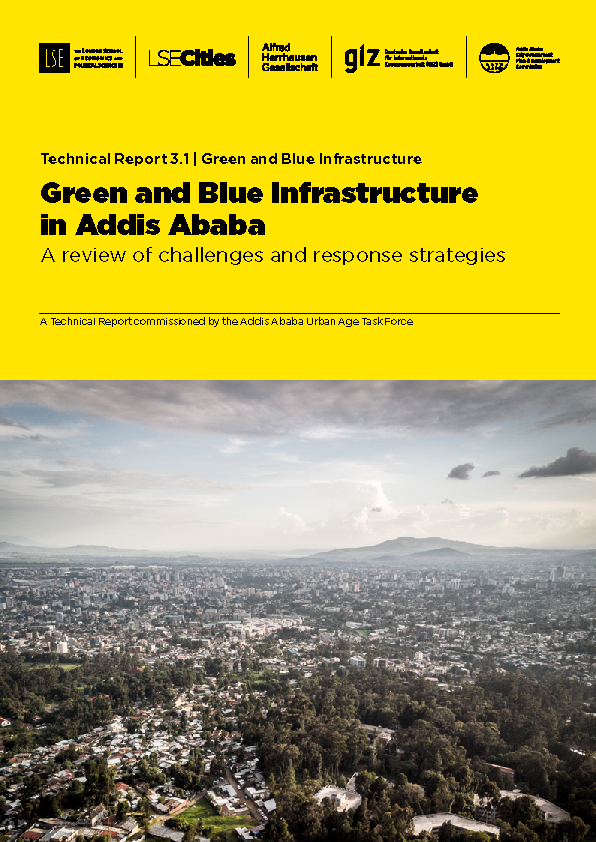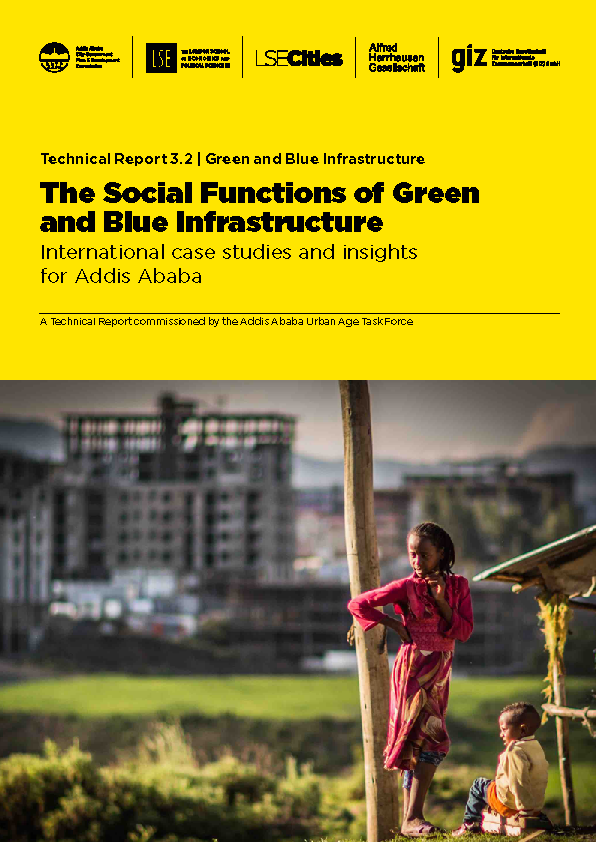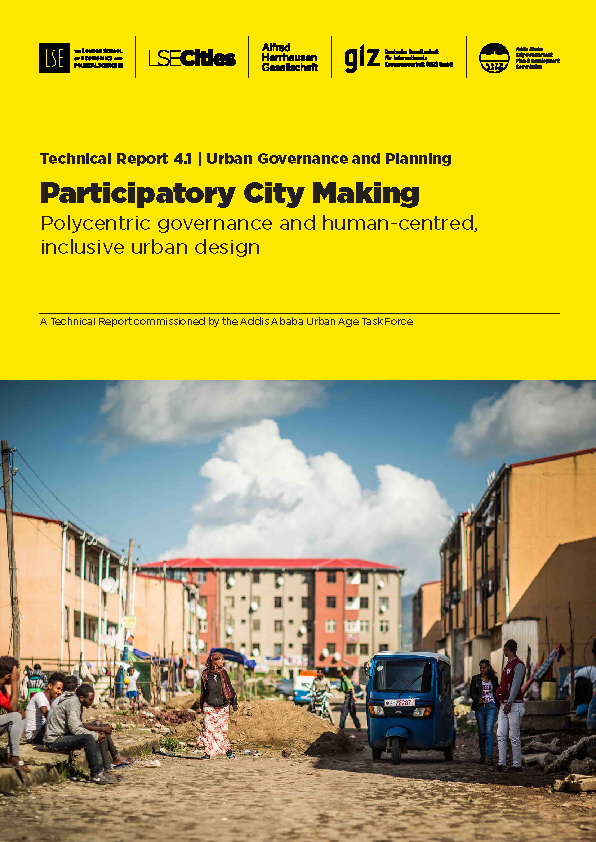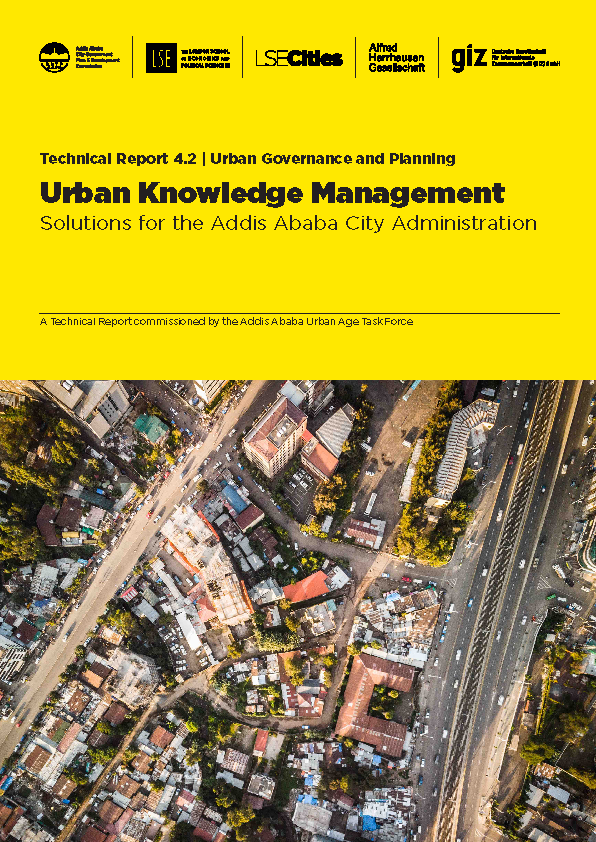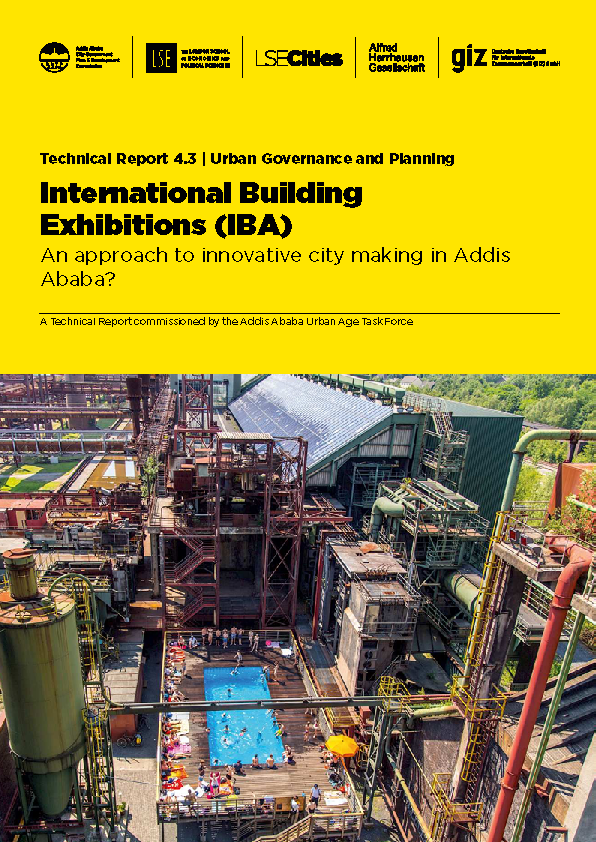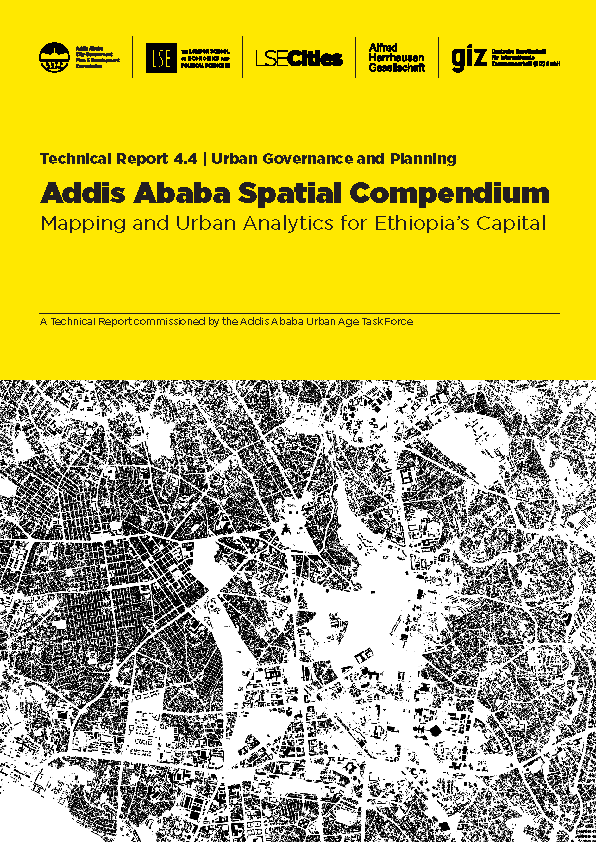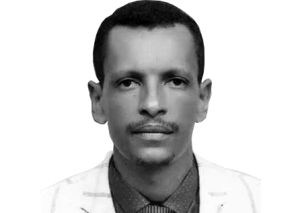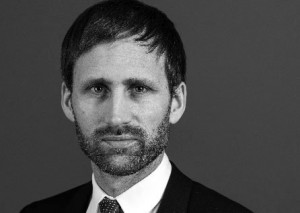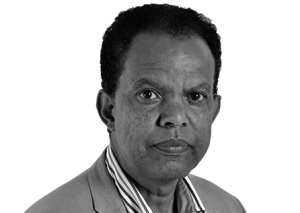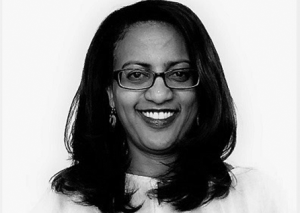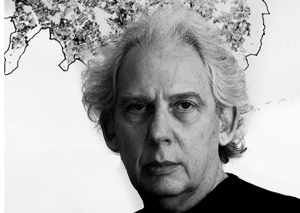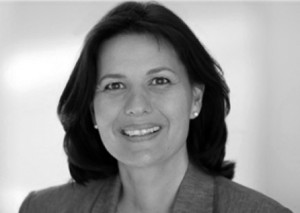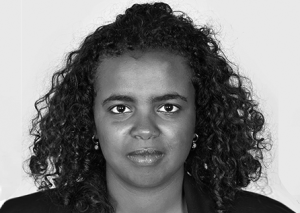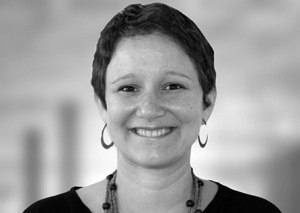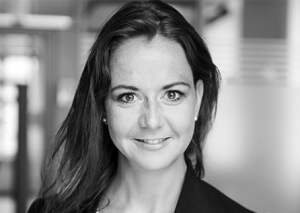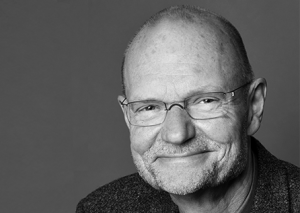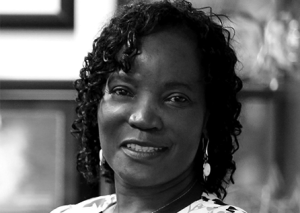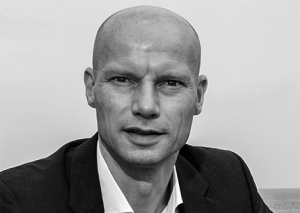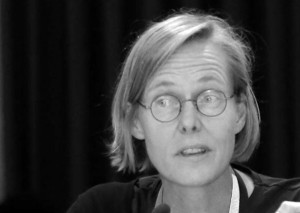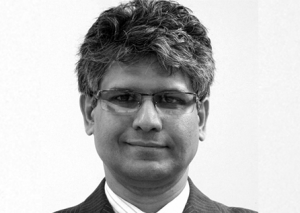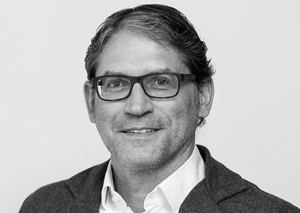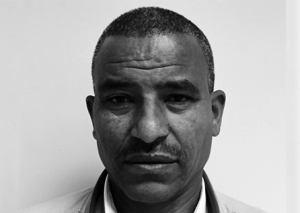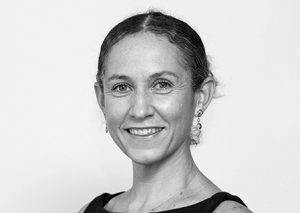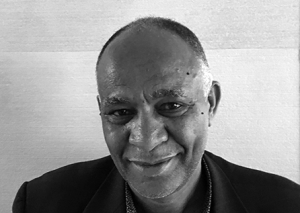About
The Addis Ababa Urban Age Task Force (AAUATF) supports the City of Addis Ababa in advancing its strategic development agenda. The Task Force’s work builds upon the Addis Ababa City Structure Plan 2017–2027, exploring opportunities for compact and well-connected urban growth that can be delivered through integrated city governance. In addition to advisory activities and capacity building, it identifies strategic pilot projects to address complex urban challenges around four areas: Urban Housing and Retrofitting, Transport and Mobility Services, Green and Blue Infrastructure, and Urban Governance and Planning.
The Addis Ababa Urban Age Task Force is a partnership between the Addis Ababa City Plan and Development Commission (AACPDC), LSE Cities at the London School of Economics and Political Science, the Alfred Herrhausen Gesellschaft, and the Deutsche Gesellschaft für Internationale Zusammenarbeit (GIZ) GmbH.
Themes
1. Urban Housing and Retrofitting
The Addis Ababa City Structure Plan 2017-2027 proposes to build about 650,000 housing units within the core city, of which 35% will be for low-income groups. In addition to the construction of residential units on new development sites, the city is committed re-housing people living in central areas locally. The Task Force explores how new models of well-designed, higher-density housing can be integrated with jobs, public transport and services to create mixed-use communities.
2. Transport and Mobility Services
Despite its commitment to sustainable and efficient urban transport infrastructure, Addis Ababa’s road expansion programme has led to a considerable increase in motorisation and congestion. Drawing on international best practice, the Task Force identifies mobility services for Addis Ababa that may support a reduction of the growth in private vehicular traffic and thereby sustains social functions and help regenerate the local economy. The proposed strategic pilot to help with this agenda is a new mobility service based on digital vans complementing existing and planned public transport.
3. Green and Blue Infrastructure
Addis Ababa is located in a unique natural environment, embedded in grasslands and urban forests with rivers and creeks. Yet, the city suffers from a deficit of open green space. Its recreational parks have a combined area of 113 hectares, which amounts to one square meter of open space per person, well below the WHO standard of nine square metres per person. The city’s rivers and riverbeds are highly polluted, and as a consequence, under-utilised. Whilst urban agriculture is a common practice in many parts of Addis Ababa, it has not been formally incorporated into an urban development strategy.
The Task Force reviews the current provision and identifies international practices of relevance for Addis Ababa’s strategy to improve and expand green infrastructure, increase its utilisation by urban residents and strengthen the city’s resilience based on ecosystem services.
4. Urban Governance and Planning
Cutting across these three themes, the Task Force examines how urban governance structures and processes can be better aligned to improve the quality of delivery and impact on the ground. This includes reviewing and upgrading planning and evaluation tools and nurturing enabling conditions through improved knowledge-exchange, capacity-building and skills development.
The Task Force initiative also explores the potential of a future International Building Exhibition (IBA) to deliver exemplary innovative projects for Addis Ababa.
Publications
Through a collaborative process between all partners and working with local stakeholders, the Task Force commissioned and developed a series of four policy briefs and 11 Technical reports under the four themes Urban Housing and Retrofitting, Transport and Mobility Services, Green and Blue Infrastructure and Urban Governance and Planning.
Policy Briefs
Technical Reports
Presentations
Four Addis Ababa Urban Age Task Force technical reports explored through short video presentations by their authors.
The Addis Ababa City Block
Elias Yitbarek AlemayehuDigital Van Service for Addis Ababa
Gashaw AberraThe Social Functions of Green and Blue Infrastructure
Santiago del Hierro, David Jácome, Tigist Kassahun Temesgen and Cecilia Vaca Jones,Participatory City Making
Marc SteinlinMembers
Partners
Addis Ababa Plan Commission
Addis Ababa City Plan and Development Commission is committed and fully dedicated to preparing researchbased city-wide short, medium and long term strategic development plans (both socio-economic and spatial) in order to transform the city to one among the middle-income cities in the world; create a liveable city for the citizen; and make Addis Ababa the best destination for investment in Africa. The commission is accountable to promote urban economy and jobs; deliver urban renewal and housing for citizens; improve urban environment and quality of life; and support policy decisions that will register accelerated, sustainable and equitable economic growth and a climate resilient green economy.
The Alfred Herrhausen Gesellschaft
The Alfred Herrhausen Gesellschaft promotes a free and open society and its cohesion. Democracy, the social market economy and sustainability are the foundations of such a society. Our work is based on the values of Alfred Herrhausen: on freedom and responsibility, on competition and compassion. Alfred Herrhausen thought and acted with the aim of crossing and overcoming boundaries. In his memory, the Alfred Herrhausen Gesellschaft creates platforms for discussions to enrich relevant discourses during selected events, and in publications and other media.
alfred-herrhausen-gesellschaft.de
@AHG_Berlin
Deutsche Gesellschaft für Internationale (GIZ)
As a service provider in the field of international cooperation for sustainable development and international education work, GIZ is dedicated to shaping a future worth living around the world. GIZ has more than 50 years of experience in a wide variety of areas, including economic development and employment promotion, energy and the environment, and peace and security. We work with businesses, civil society actors and research institutions, fostering successful interaction between development policy and other policy fields and areas of activity. Our main commissioning party is the German Federal Ministry for Economic Cooperation and Development (BMZ).
GIZ.de
@giz_gmbh
LSE Cities
LSE Cities is an international centre at the London School of Economics and Political Science that carries out research, conferences, graduate and executive education and engagement activities in London and abroad. It studies how people and cities interact in a rapidly urbanising world, focusing on how the physical form and design of cities impacts on society, culture and the environment. Extending LSE’s century-old commitment to the understanding of urban society, LSE Cities investigates how complex urban systems are responding to the pressures of growth, change and globalisation with new infrastructures of design and governance that both complement and threaten social and environmental equity.
LSE.ac.uk/cities
@LSECities
Urban Age
The Urban Age programme is an international investigation of cities jointly organised by LSE Cities and the Alfred Herrhausen Gesellschaft. Through conferences, research, advisory work and engagement, the Urban Age explores the diverse spatial, social, economic and political dynamics of global cities in different regions of the world. Since 2005 the Urban Age has built an extensive knowledge base with interdisciplinary expertise. It is an authoritative source of comparative data and visual information on over 60 global cities and urban regions, and a repository of critical writings, reflections and presentations by urban leaders, practitioners and experts. Urban Age conferences have been held in cities across five continents, including Addis Ababa, Delhi, Rio de Janeiro, London, Hong Kong, Istanbul, São Paulo, Mumbai, Mexico City, Johannesburg, Berlin, Shanghai and New York City. In 2019 the Urban Age Task Force was launched to work with city governments and help deliver sustainable urban change at the environmental, social and spatial level.
urbanage.LSECities.net
@UrbanAge
